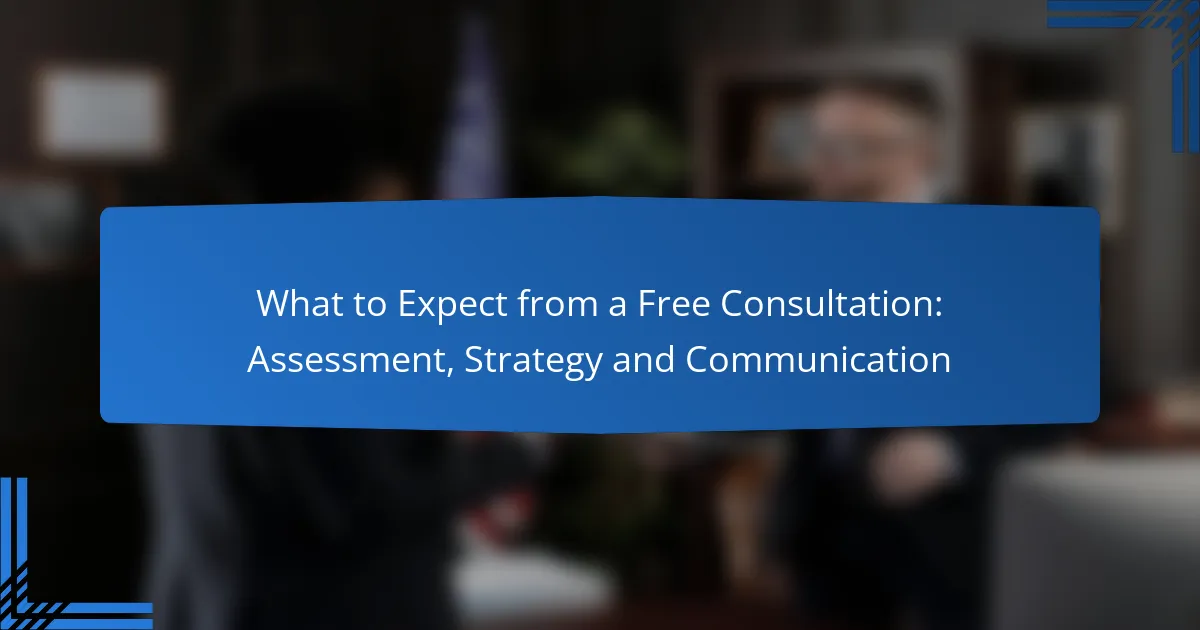A free consultation offers a valuable opportunity for a comprehensive assessment of your needs and objectives. During this initial meeting, you will receive an overview of available services and engage in a discussion to formulate a tailored strategy that aligns with your goals. This process lays the groundwork for a productive working relationship, ensuring that your specific needs are addressed effectively.

What can I expect during a free consultation?
During a free consultation, you can expect a thorough evaluation of your needs, an overview of available services, and a discussion about your specific goals and objectives. This initial meeting is designed to establish a foundation for a potential working relationship.
Initial assessment of needs
The initial assessment focuses on understanding your unique situation and requirements. This may involve discussing your current challenges, desired outcomes, and any relevant background information that can inform the consultation process.
Be prepared to share details about your circumstances, as this will help the consultant tailor their approach to your specific needs. A good consultant will ask targeted questions to gain insights into your situation.
Overview of services offered
After assessing your needs, the consultant will provide an overview of the services they offer that are relevant to your situation. This may include various strategies, tools, or resources available to help you achieve your goals.
Take note of the services that resonate with you and ask questions about how they can be applied to your specific needs. Understanding the range of options can help you make informed decisions moving forward.
Discussion of goals and objectives
The discussion of goals and objectives is crucial for aligning expectations and ensuring that both you and the consultant are on the same page. This conversation should clarify what you hope to achieve and set realistic timelines for reaching those goals.
Consider outlining your short-term and long-term objectives during this discussion. This will enable the consultant to develop a tailored strategy that aligns with your aspirations and ensures a focused approach to your needs.
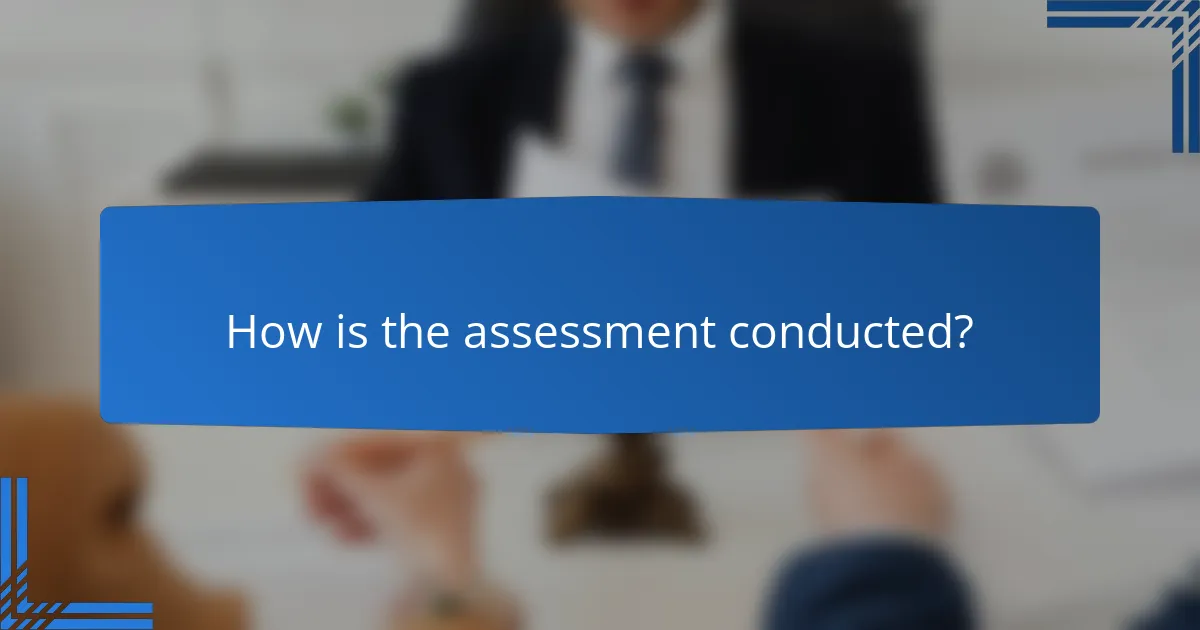
How is the assessment conducted?
The assessment during a free consultation typically involves gathering information to understand your needs and objectives. This process helps in formulating a tailored strategy that aligns with your goals.
Questionnaire or survey
A questionnaire or survey is often the first step in the assessment process. It usually includes a series of targeted questions designed to capture essential information about your situation, preferences, and expectations.
These surveys can vary in length but generally take around 10 to 15 minutes to complete. They may cover areas such as your current challenges, desired outcomes, and any previous experiences relevant to the consultation.
One-on-one discussion
The one-on-one discussion follows the questionnaire and allows for a deeper exploration of your responses. This conversation typically lasts between 30 minutes to an hour, providing ample time to clarify any points and delve into specifics.
During this discussion, the consultant will ask open-ended questions to encourage dialogue and gather more nuanced insights. This interactive format helps build rapport and ensures that the strategy developed is well-informed and personalized to your needs.
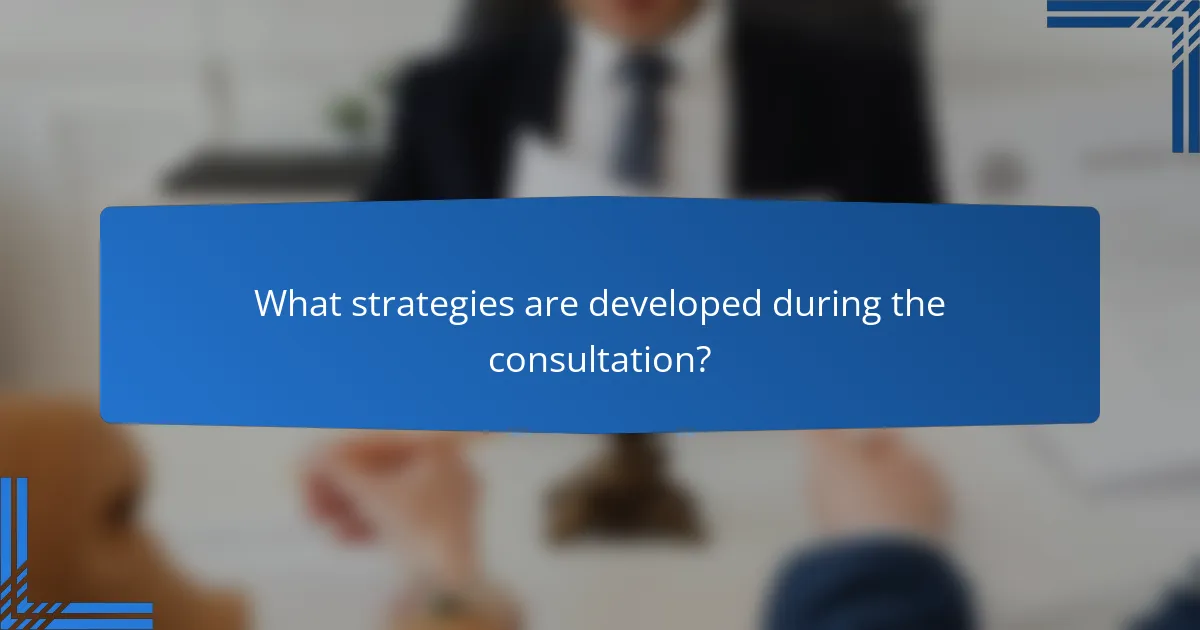
What strategies are developed during the consultation?
During a free consultation, various strategies are formulated to address the specific needs of the client. These strategies typically focus on assessing current situations, identifying goals, and outlining actionable steps to achieve desired outcomes.
Customized action plan
A customized action plan is tailored to the individual or business’s unique circumstances. This plan outlines specific objectives, timelines, and measurable outcomes to ensure progress can be tracked effectively.
For example, if a business aims to increase its online presence, the action plan may include steps such as optimizing the website, enhancing social media engagement, and implementing targeted advertising campaigns.
Resource allocation recommendations
Resource allocation recommendations focus on how to best utilize available resources to achieve the goals outlined in the action plan. This includes budgeting for marketing efforts, personnel assignments, and technology investments.
Clients may receive guidance on prioritizing expenditures, such as allocating a certain percentage of their budget to digital marketing versus traditional advertising, ensuring that resources are directed towards the most impactful strategies.
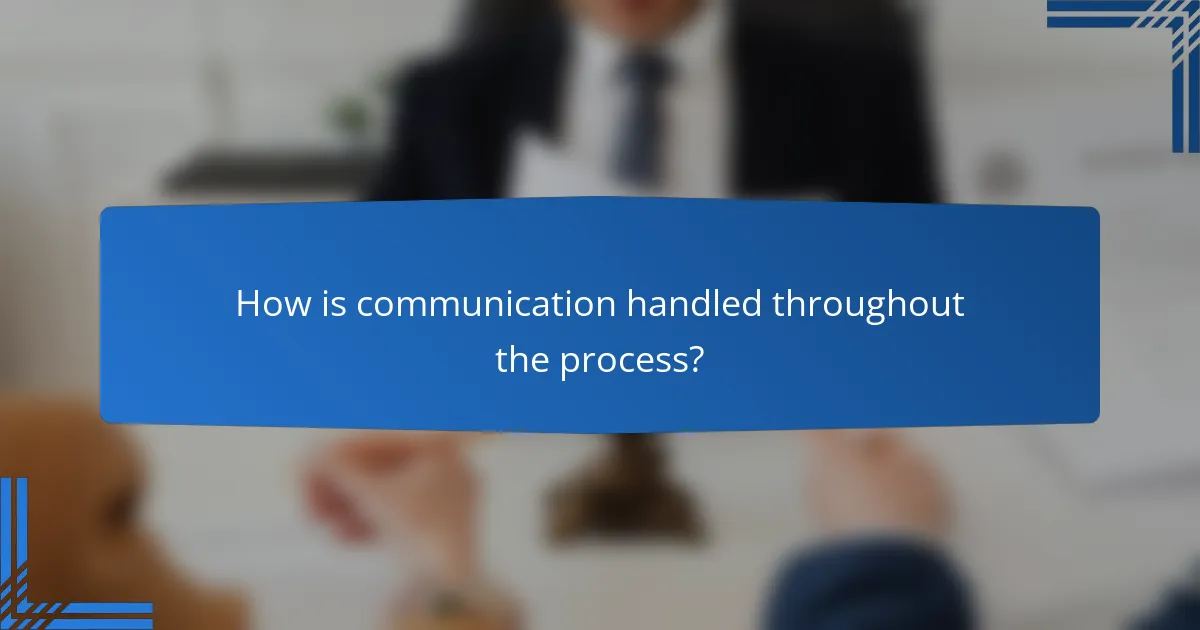
How is communication handled throughout the process?
Communication during a free consultation is structured to ensure clarity and engagement. Clients can expect a combination of regular updates and scheduled interactions to keep them informed and involved in the process.
Regular updates via email
Email updates are a key component of the communication strategy. Clients typically receive progress reports that outline the current status, next steps, and any important findings. These updates help maintain transparency and allow clients to ask questions or provide feedback as needed.
It’s advisable to check your email regularly to stay informed. Expect updates to arrive weekly or bi-weekly, depending on the complexity of the consultation. This frequency ensures that you are not left in the dark about developments.
Scheduled follow-up calls
Follow-up calls are scheduled to provide a more personal touch and to discuss any questions that may arise from email updates. These calls usually occur at key milestones or after significant developments, allowing for in-depth discussions about strategy and next steps.
Clients should prepare for these calls by reviewing previous communications and noting any questions or concerns. Typically, these calls last around 15 to 30 minutes, providing ample time for a focused conversation. Aim to be proactive in these discussions to maximize the value of the consultation.
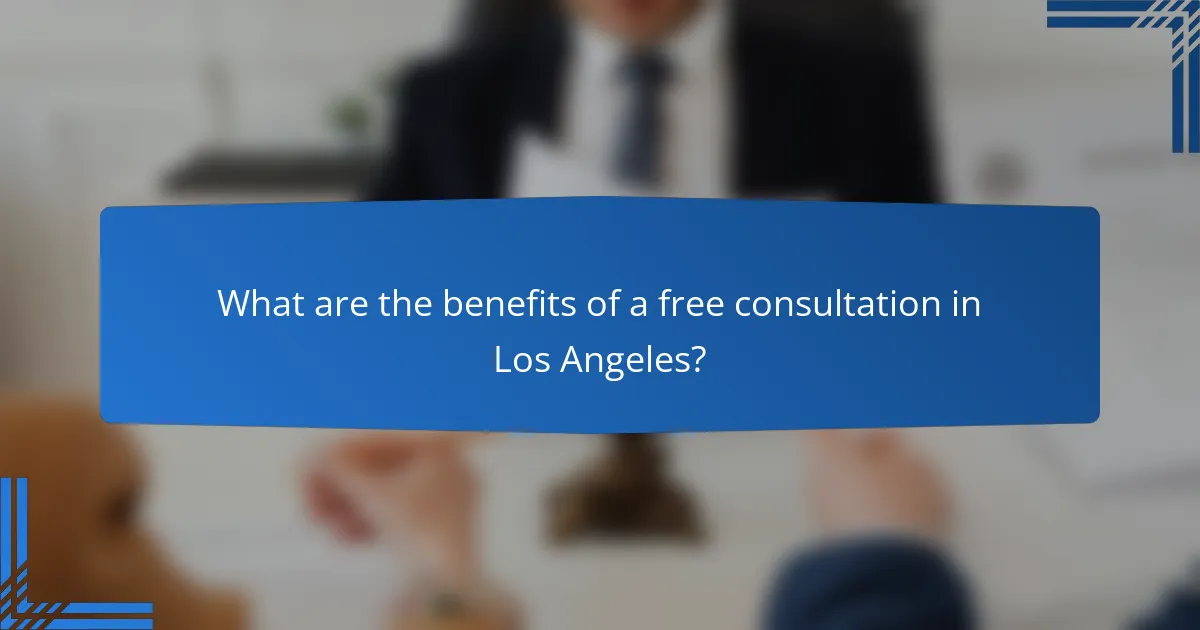
What are the benefits of a free consultation in Los Angeles?
A free consultation in Los Angeles offers valuable insights into your specific needs without any financial commitment. It allows you to assess potential services, establish rapport with professionals, and gain a clearer understanding of strategies tailored to your situation.
Access to local expertise
During a free consultation, you gain access to professionals who understand the unique landscape of Los Angeles. Their local expertise can provide insights into market trends, regulations, and cultural nuances that may impact your decisions.
For example, if you’re considering real estate investments, a local expert can inform you about neighborhood developments, zoning laws, and property values specific to Los Angeles. This knowledge can significantly influence your strategy and outcomes.
Personalized service tailored to the market
A free consultation allows for a personalized approach, ensuring that the services you receive are tailored to the Los Angeles market. Professionals can assess your individual circumstances and goals, crafting strategies that align with local conditions.
For instance, if you’re seeking legal advice, a local attorney can provide insights into California laws that may affect your case, ensuring that your strategy is relevant and effective. This tailored service can enhance your chances of success in a competitive environment.
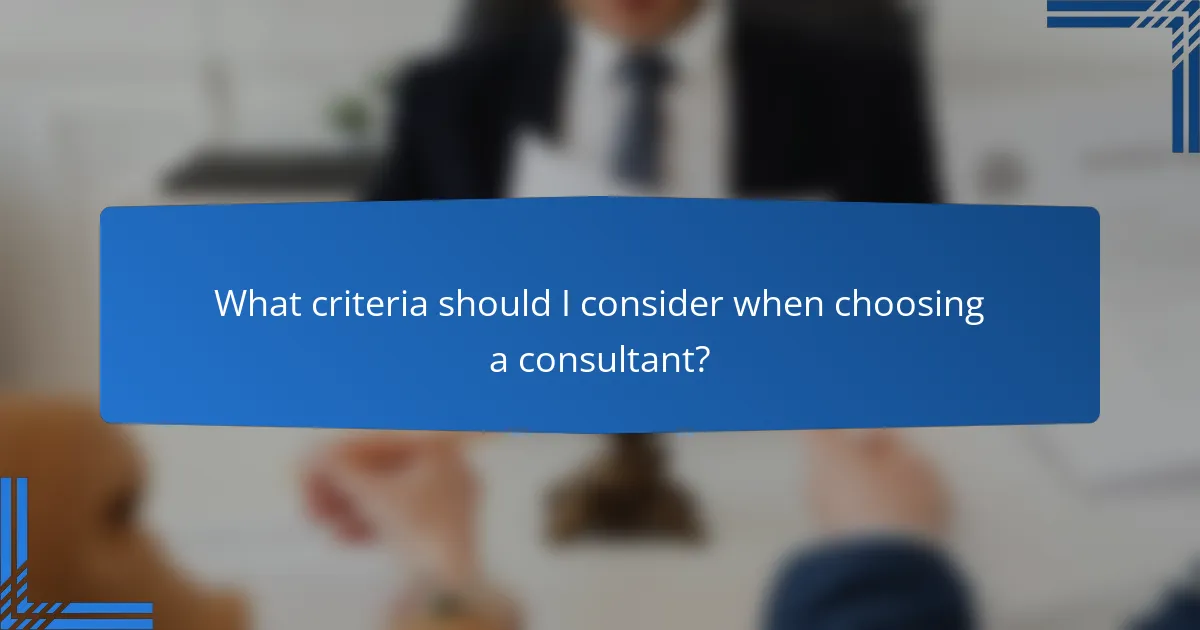
What criteria should I consider when choosing a consultant?
When selecting a consultant, focus on their expertise, proven results, and communication style. These factors will help ensure that you find a professional who can meet your specific needs and foster a productive working relationship.
Experience and qualifications
Evaluate the consultant’s background, including their education, certifications, and years of experience in your industry. Look for professionals who have a track record of success in similar projects or challenges.
Consider their familiarity with relevant regulations and standards that may apply to your business. For example, if you’re in the healthcare sector, a consultant with knowledge of HIPAA compliance will be more beneficial.
Client testimonials and case studies
Review client testimonials and case studies to gauge the consultant’s effectiveness. Positive feedback from previous clients can provide insight into their ability to deliver results and maintain strong relationships.
Ask for specific examples of past projects that align with your needs. A consultant who can demonstrate measurable outcomes, such as increased revenue or improved efficiency, will likely be a valuable partner.
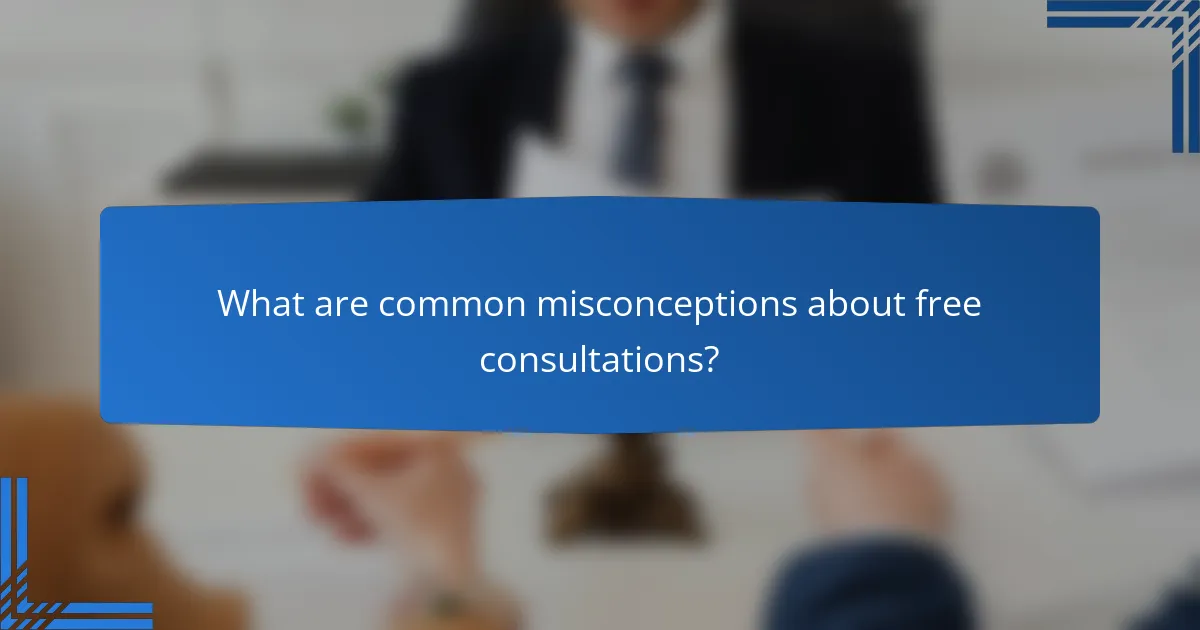
What are common misconceptions about free consultations?
Many people believe that free consultations are merely sales pitches or that they provide little value. In reality, these consultations often serve as a genuine opportunity for assessment and strategy development, allowing both parties to evaluate potential collaboration.
Free consultations are just sales tactics
While some businesses may use free consultations as a way to sell their services, many professionals aim to provide real value. A good consultation focuses on understanding your needs and challenges, rather than pushing a product. It’s essential to approach these meetings with an open mind.
They don’t offer any real insights
Another misconception is that free consultations lack depth. In fact, they can provide valuable insights into your situation. Experts often use these sessions to assess your unique circumstances and suggest tailored strategies, which can be beneficial even if you choose not to engage further.
All free consultations are the same
Not all free consultations are created equal. The quality and structure can vary significantly between providers. Some may focus more on assessment, while others emphasize strategy or communication. It’s important to research and choose a provider whose approach aligns with your needs.
